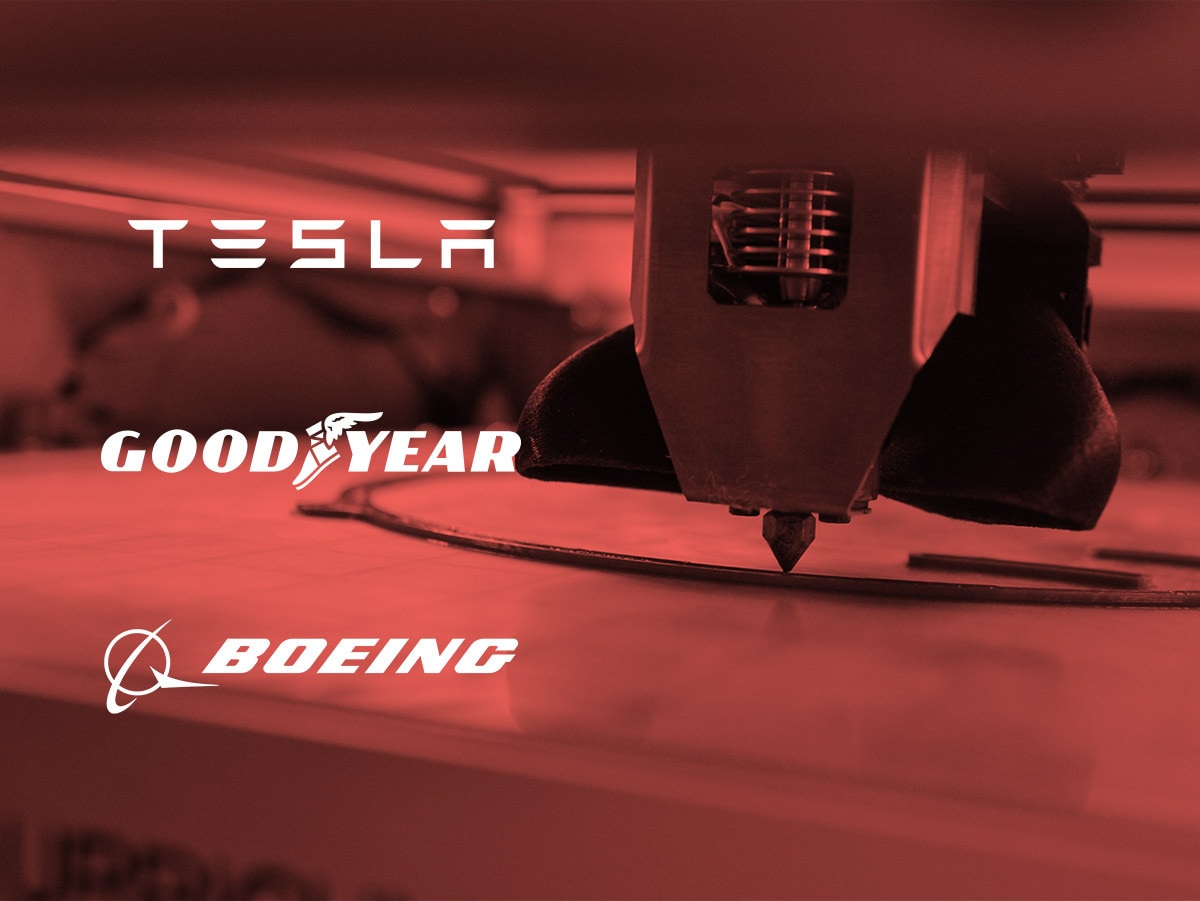The use of 3D printers among major manufacturers such as Boeing [BA], Goodyear [GT] and Tesla [TLSA] to achieve economies of scale has been gaining traction over the past several years.
A McKinsey report published in May listed the key benefits of additive manufacturing as: the ability to produce parts of any shape, mass-scale customisation, more efficient production time, accelerated time to market and reduced need for maintenance.
As the technology advances, some 10 million 3D printers are expected to be sold by 2030 as costs decline and technology advances. The additive manufacturing industry was valued at $113.8bn last year and SkyQuest Technology has projected it to rise to $51.95bn by 2028, implying a compound annual growth rate of 20.8%.
However, so far in 2022, investors have scaled back bets. ARK Invest’s 3D Printing ETF [PRNT] has a negative return of 28.4% year-to-date through 10 August, but is up 13% over the past month. The fund holds 3D printing hardware and software vendors and additive manufacturing material companies.
Goodyear speeds up tyre production
Recognising that speed is of the essence, Goodyear launched a new manufacturing facility in Dudelange, Luxembourg in May. The company has invested $77m in industry 4.0 technologies to improve the production process at the site.
The process will enable tyres to be made four times faster than a standard production cycle thanks to automation and some parts being printed using additive manufacturing.
Goodyear is aiming to bring a maintenance-free tyre to market by 2030 and additive manufacturing will be key to helping it achieve this. As Chris Helsel, senior vice president of global operations and CTO at Goodyear, explained to CNBC: “Like with any innovation, targeting the right use case is key. 3D printing is not for every job. We’re using additive manufacturing for higher-end, ultra-high performance tyres that require much more complexity, and in smaller lot sizes.”
The Goodyear share price is down 34.4% year-to-date through 10 August to $13.98, but has gained 25.5% in the past month after having set a 52-week low of $10.33 on 5 July.
Tesla sees limitations with 3D printing
Goodyear tested 3D-printed airless tyres on a Tesla Model 3 in November last year. The electric vehicle maker has itself adopted additive manufacturing in research and development and prototyping, but there is very little evidence of 3D printing being used in the actual production process.
Elon Musk has previously appeared to throw cold water on 3D printing’s potential on the factory floor. “Additive manufacturing of parts is still far too costly for cars, but can rapidly create tooling to accelerate pace of innovation,” Musk tweeted in October 2020. In a separate post, he argued that metal casting “crushes best-case 3D printing” in some situations.
Despite this, Musk is bullish on 3D printing for rocket engine parts and said that “to the best of our knowledge, SpaceX is two or three years ahead of other companies in use of additive manufacturing”.
The Tesla share price has fallen 16.4% year-to-date to $883.07 at the close on 9 August. The stock has recovered by 42.3% since recording a 52-week low of $620.57 on 24 May.
Boeing to print engine parts for efficient flying
Aerospace group Boeing unveiled the 777-200 in June, which it said will act “as a test bed for 30 new technologies to help decarbonise aviation”. It’s part of its ecoDemonstrator research programme that has been running since 2012.
Among the technologies being deployed will be additive manufacturing, to print parts that can facilitate the reduction of fuel consumption and weight.
“Flight test engineers plan to fly the aircraft with an additive-manufactured engine bracket designed to secure wiring in one of the 777’s huge turbofan engines,” noted industry publication Flying last month, whose reporter got to peek under the hood.
The Boeing share price dropped to a 52-week low of $113.02 on 14 June, but closed on 10 August 49.5% higher at $169.02. Year-to-date the stock has fallen 16%.
Disclaimer Past performance is not a reliable indicator of future results.
CMC Markets is an execution-only service provider. The material (whether or not it states any opinions) is for general information purposes only, and does not take into account your personal circumstances or objectives. Nothing in this material is (or should be considered to be) financial, investment or other advice on which reliance should be placed. No opinion given in the material constitutes a recommendation by CMC Markets or the author that any particular investment, security, transaction or investment strategy is suitable for any specific person.
The material has not been prepared in accordance with legal requirements designed to promote the independence of investment research. Although we are not specifically prevented from dealing before providing this material, we do not seek to take advantage of the material prior to its dissemination.
CMC Markets does not endorse or offer opinion on the trading strategies used by the author. Their trading strategies do not guarantee any return and CMC Markets shall not be held responsible for any loss that you may incur, either directly or indirectly, arising from any investment based on any information contained herein.
*Tax treatment depends on individual circumstances and can change or may differ in a jurisdiction other than the UK.
Continue reading for FREE
- Includes free newsletter updates, unsubscribe anytime. Privacy policy





